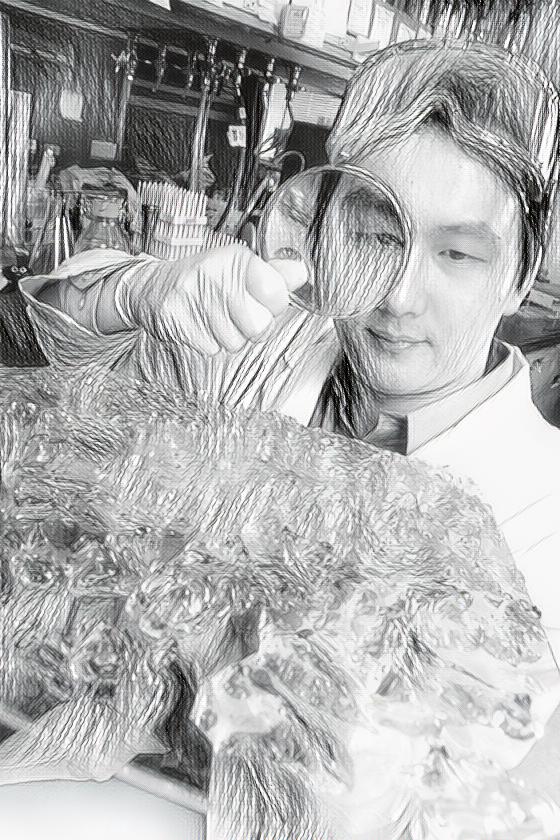Timothy Lu
Bacterial infections affect hundreds of thousands of people in the United States every year, and in some cases, they are serious, even fatal. Though scientists have developed a number of effective antibiotics to fight off harmful bacteria, many of these microscopic organisms have developed resistance to such medications. This, combined with the fact that developing antibiotic drugs is extremely expensive and resource-intensive for drug companies, means that the overall effectiveness of this class of medications could be poised to decline.
Synthetic biologist Timothy Lu aims to turn this issue around with his work on bacteriophage, viruses that attack only bacteria, not human cells. He hopes that the results of his work will be effective in destroying some types of antibiotic-resistant bacteria. His inventions are aimed at helping to enable the rapid design and production of inexpensive antibacterial agents that have the power to boost antibiotic effectiveness.
Lu was born in 1980 in Stanford, California, and was raised in Yorktown Heights, New York, and Taiwan. His interest in scientific endeavors was inspired in part by his father, an engineer-entrepreneur who has worked in the semiconductor and integrated circuits industries.
Lu pursued MD and PhD degrees through the Harvard-MIT Division of Health Sciences and Technology program, a partnership among the Massachusetts Institute of Technology, Harvard University, Harvard Medical School, and several Boston area teaching hospitals and research centers. While working at a hospital as part of a graduate course, he saw many patients who contracted new infections due to already-compromised immune systems or equipment that is extremely difficult to keep sterile. He identified this as a very serious problem and thought that there must be something he could do to help.
With his advisor, J.J. Collins, a professor at Boston University, Lu began looking at bacteriophage as a possible platform for overcoming antibiotic resistance. While these viruses have been used for nearly a century to treat bacterial infections, their popularity declined among the medical community when antibiotics became readily available. Lu decided to apply synthetic engineering to develop bacteriophage specifically aimed at boosting antibiotic effectiveness. Simply explained, the bacteriophage carries DNA that codes for factors that target bacterial gene networks, which former treatments failed to reach, and destroys bacterial antibiotic resistance mechanisms. The weakened bacterial defenses enable antibiotics to perform better.
Administered together, Lu’s bacteriophage and antibiotics have the potential to eliminate nearly 30,000 times more bacteria than antibiotics alone, including cells that survive antibiotic-only treatment. This combination treatment also thwarts the development of stronger antibiotic resistance, which can extend the lifetime of existing and future antibiotic drugs.
Lu has also applied his work with bacteriophage to create a new technique for reducing harmful biofilms, slimy layers of bacteria that develop on the surfaces of medical, industrial, and food processing equipment and are difficult to penetrate and remove. Current treatment methods to penetrate biofilms involve peptides or enzymes, which must be administered systemically and are costly. Medical devices infected by biofilms, such as replacement hip joints or pacemakers, often have to be removed surgically.
Lu invented enzymatically active bacteriophage that directly target the infection site, where they can simultaneously penetrate the biofilm’s protective slime layer and kill the bacteria underneath. In tests, his platform proved greater than 99.997 percent effective at destroying biofilms, which was a significant improvement over current treatment options.
In recognition of his efforts, Lu was awarded the 2008 Lemelson-MIT Student Prize.


